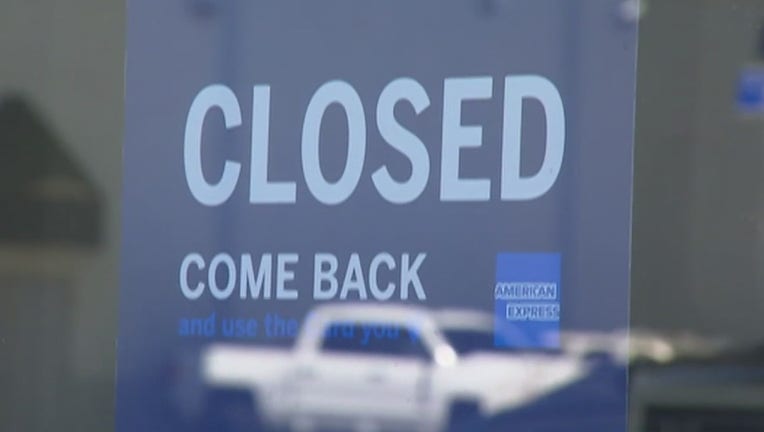One year later: How COVID killed small businesses

SAN RAFAEL, Calif. - It is hard to quantify the massive havoc that COVID has wreaked on California's economy.
But no part of it has been harder hit than small business. There are both sobering numbers that are well documented and other data that yet to come.
San Rafael's 4th Street was a bustling business boulevard before the pandemic.
Today, as in every community, many storefronts are empty and this upscale community is struggling.
"A lot of business owners are still struggling to stay open so they haven't necessarily closed," said UC Santa Cruz economics professor Robert Fairlie who specializes in small business research.
The American Restaurant Association says 1 of every 6 U.S. restaurants has closed permanently.
That's 110,000 restaurants and climbing; 12,000 here in California.
When it's all over, the California Restaurant Association thinks it will end up more like 30% of restaurants or 23,000 eateries that are gone forever.
Yelp data shows 60% of business closures due to the coronavirus pandemic are now permanent.
"If you're going to make that decision to close your business right now, you have to be able to find some other opportunity for work and this is not an ideal time to find a job," said Fairlie.
Rachel Michelin, CEO of the California Retailers Association says retailers are witnessing a slaughter, with a toll that's also growing.
"At one point we were looking at 30% of particularly small business retailers not coming back," said Michelin.
Michelin said asking for relief or modifications given California's overwhelming number of rules, regulations, and fees, has proved and continues to prove to be an impossible task.
"There were opportunities, I think, that we advocated on, on how these stores could safely operate throughout the entire pandemic and that just didn't happen," said Michelin.
With vaccines providing a light at the end of a still long tunnel, there will be some sort of rebound.
"There's a lot of pent-up demand. I mean, a lot of people are really itching to go out, to go downtown, to go to restaurants, to go to bars, to get dessert, to walk around to get back into movie theaters," said Fairlie.
Michelin added: "It's good for our communities and so we really need to be fostering opportunities for these stores to stay open."
"But, something we saw pre-pandemic may ruin that party," Fairlie said. "I think that we're also more used to purchasing things online and that is something that is not going to go entirely away."
Across the business spectrum, many large retailers have either downsized or closed, or filed for bankruptcy at almost twice the rate of 2018 or all of the bad choices above. Many regional retailers, such a Fry's Electronics, are gone.
We won't know the true extent of the damage for another year when the Census Bureau compiles its report.
"But, never count out California's world-leading entrepreneurial spirit," said Michelin. "You're going to see people looking and finding the opportunity within the chaos."

